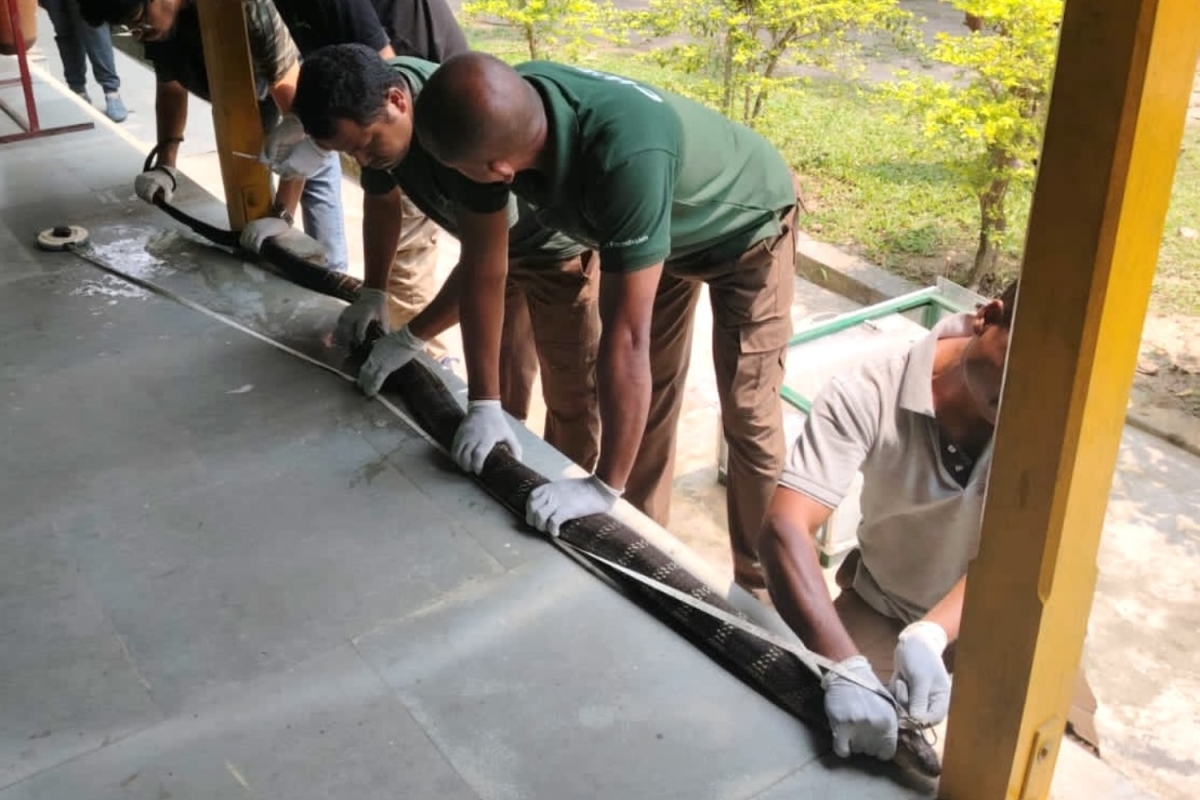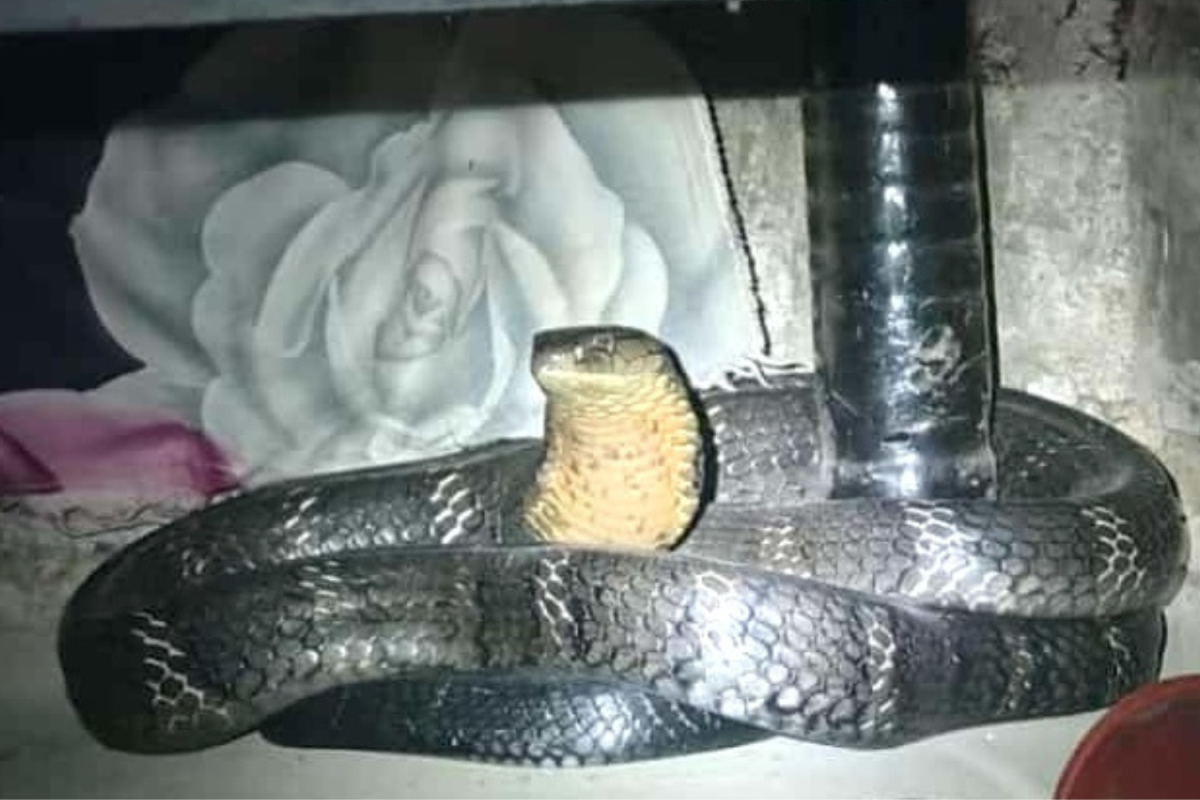A family was forced to call in reinforcements when they stumbled on a 10-foot king cobra coiled in their home in Panijuri village, India.
King cobras have enough venom in a single bite to kill an elephant. They are the largest venomous snakes in the world, growing up to 18.5 feet long on average.
Recognizing the imminent danger, the family quickly alerted a Range Forest officer, who swiftly coordinated with the Centre for Wildlife Rehabilitation & Conservation (CWRC) team for immediate assistance.
Before long, trained rescuers from CWRC, a collaborative effort between the Assam Forest Department, Wildlife Trust of India, and the International Fund for Animal Welfare, were on the scene with specialized handling tools. With precision, they secured the king cobra and removed it safely from the home.

Native to the forests of Southeast and Southern Asia, king cobras are the only snakes known to build nests to protect their eggs. They primarily eat other snakes, including venomous snakes like other cobra species. Thankfully, they are generally not aggressive towards humans and prefer to avoid confrontation.
Across its entire habitat in Southeast and Southern Asia, king cobras cause fewer than five human deaths a year, about one-fifth as many as rattlesnakes in North America.
In 2022, a rattlesnake bite killed a 6-year-old boy in Colorado when he was on a bike ride with his dad, while in September 2023 an Amazon driver was left in a "very serious" condition when she received a bite from an Eastern diamondback rattlesnake while delivering a package in Florida.
The king cobra was taken to a Wildlife Trust of India facility for further evaluation and will then be released back into the wild as part of a commitment to preserving snakes in their natural habitat.

"We will be microchipping the snake before releasing it back into the wild. So far, we have released 27 king cobras back to their original habitat and microchipped 5 individuals for identification purposes," said Dr. Bhaskar Choudhury, Division Head of Wild Rescue at Wildlife Trust of India.
King cobras are classified as "vulnerable" by the International Union for Conservation of Nature due to threats like habitat loss and poaching. They are protected in several of the countries they inhabit, and in India, killing a king cobra is punishable by up to six years in prison.
Choudhury expressed his thanks to the community for their help during the rescue.
"We are thankful to the public for refraining from hostility towards the snake and, instead, choosing to close the doors and windows of the house while awaiting our rescue team," he said.
Uncommon Knowledge
Newsweek is committed to challenging conventional wisdom and finding connections in the search for common ground.
Newsweek is committed to challenging conventional wisdom and finding connections in the search for common ground.
About the writer
Alice Gibbs is a Newsweek Senior Internet Trends & Culture Reporter based in the U.K. For the last two years ... Read more
To read how Newsweek uses AI as a newsroom tool, Click here.








